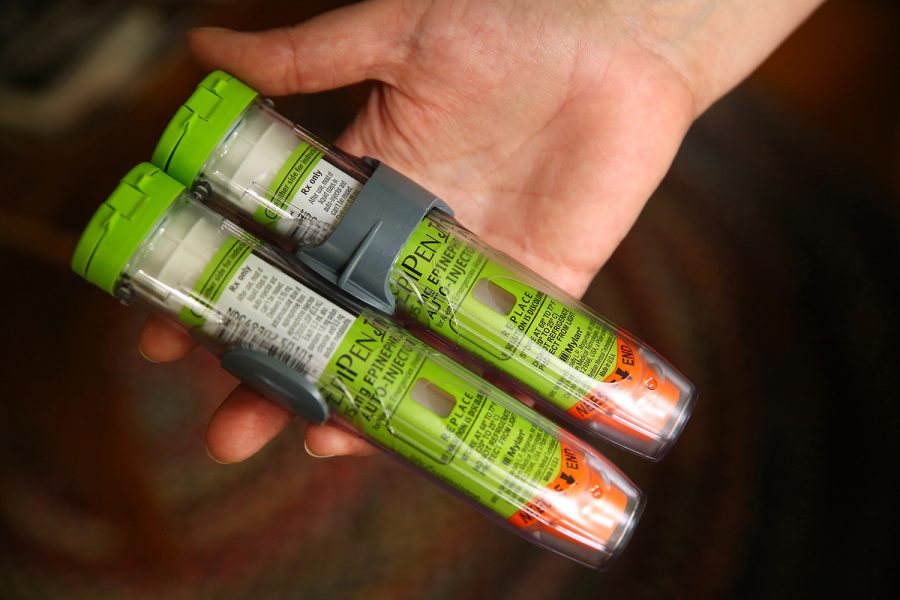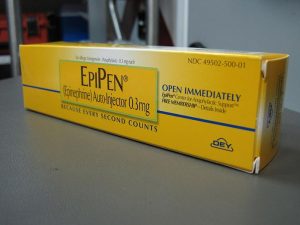Local pharmacies scramble in light of the EpiPen shortage
Local Iowa City pharmacies wonder when the national EpiPen shortage will end.
(Chris Walker / Chicago Tribune/TNS)
Two EpiPen Jr autoinjectors are seen in 2016. Epinephrine autoinjectors, used to treat severe allergic reactions, are in short supply and were added to the Food and Drug Administration's drug shortage list on May 9, 2018.
September 3, 2018
The FDA announced an EpiPen shortage in May, and local pharmacies are still scrambling to provide the devices to patients.
Epinephrine is a medication that narrows blood vessels and opens airways to reverse the symptoms experienced during a severe allergic reaction. Epinephrine auto-injectors, generally known as EpiPens, are used to inject the medication.
Michael Brownlee, the chief pharmacy officer at UI Health Care and associate dean at the College of Pharmacy, said the shortage is a result of low production from the manufacturer of EpiPens, Pfizer.
“The FDA has the opportunity to review operations to make sure that they’re safe, and I think at that time, the FDA had done an investigation or review of [Pfizer’s] production plant, and they ended up having some limited distribution, having shut down part of their plants,” Brownlee said.
The shortage was announced by the FDA when it found Pfizer in violation of several regulations.
Mylan, the company responsible for EpiPen distribution, has reacted to the shortage and Pfizer’s FDA violations.
“A few months ago, Mylan informed FDA of intermittent supply constraints due to manufacturing delays from Pfizer,” Mylan said in its press release. “Since this time, Mylan and Pfizer have remained in close contact with FDA to provide regular updates on the inventory status.”
Mylan’s statement also directed customers to Pfizer’s press release.
In its press release, Pfizer said, “We are working tirelessly to increase production and expedite shipments as rapidly as possible.”
In light of the shortage, Pfizer has offered a generic brand to supplement the lack of EpiPens and provided an alternative at a lower cost. The FDA also extended the expiration date of some EpiPens by four months.
“I know prices had increased before just because the company, Mylan, was increasing the cost of the EpiPen, but I’d say over time, it’s really leveled out,” Brownlee said. “They introduced a generic to the market that was substantially cheaper than the branded product, so I don’t think the shortage has had an impact on the overall price of the medication.”
This, however, raises concern about the effectiveness of the use of the generic as a supplement. Currently, both the brand and generic versions of EpiPens are in short supply, negating the difference in price.
Though Brownlee said EpiPen shortage has not affected UI Health Care, local pharmacies still feel the effects of low EpiPen production.
“There is a shortage from the manufacturer, so we aren’t getting any EpiPens,” said Dianne Morrison, a staff pharmacist at CVS in Iowa City.
Morrison said the CVS pharmacy is not receiving any EpiPens or generic brands and is unsure of when they could be in supply next.
Feng Chen, a pharmacist at Walgreens, said it suffers from the shortage as well.
“[Mylan] keep pushing the date back, so we’re not sure when we’re getting them,” Chen said.
It may receive a shipment in September, Chen said. The local Walgreens’ pharmacy also said it had no branded or generic EpiPen in supply.




